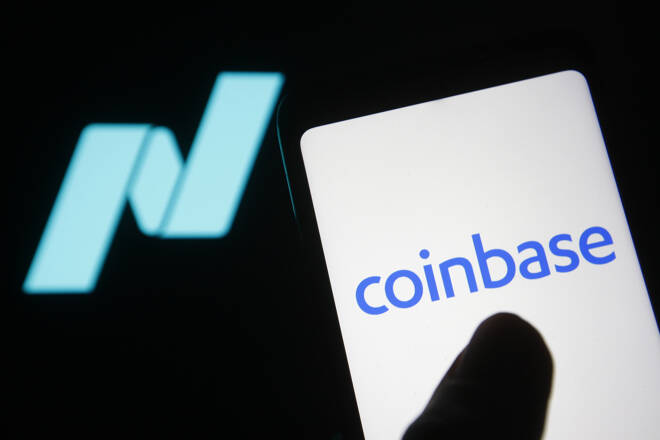Advertisement
Advertisement
Coinbase Faces SEC Probe Over Crypto Yield and Staking Products
By:
Coinbase is under investigation for its token listing processes, staking programs and yield-generating products
Key Insights:
- Coinbase has received investigative subpoenas over its yield and staking products.
- The SEC has requested documents and information about certain customer programs, operations, and existing and intended future products.
- The regulator claims that Coinbase listed at least nine digital assets that should have been registered as securities.
Last month, Coinbase made the headlines for all the wrong reasons when it was revealed that the U.S. Securities and Exchange Commission (SEC) is investigating whether the company allowed Americans to trade digital assets that should have been registered as securities.
The popular crypto exchange is also under another investigation over its staking programs and yield-generating products.
Crypto Yield and Staking Products
In its most recent quarterly filing, Coinbase has revealed that the SEC has sent the company investigative subpoenas over its yield and staking products.
Coinbase also shared that it has received requests from the SEC for documents and information about certain customer programs, operations, and existing and intended future products, including the company’s processes for listing assets and the classification of certain listed assets.
Yield farming refers to a cryptocurrency investment strategy that allows users to lock up funds in order to earn rewards in the process. Coinbase’s yield-generating products enable eligible customers to earn yield by lending their crypto to third-party decentralised finance (DeFi) protocols in order to earn fixed or variable interest.
On the other hand, staking involves holding funds in a cryptocurrency wallet to support the operations of a blockchain network and earning rewards in the process. It requires a lockup where your crypto can’t be transferred for a certain period of time. Coinbase recently launched Ethereum (ETH) staking for U.S. institutional clients on Coinbase Prime.
Staking and yield-generating products have gained traction worldwide whilst catching the eye of regulators. For example, the UK’s tax agency, Her Majesty’s Revenue and Customs (HMRC) updated its guidance on the taxation of lending and staking in proof-of-stake (PoS) networks earlier this year.
Ongoing Investigations
Coinbase, which boasts over 100 million users in over 100 countries, is facing investigations on multiple fronts, including a claim from the SEC that it listed at least nine digital assets that should have been registered as securities.
More specifically, an ex-Coinbase employee was charged last month in the first federal case alleging insider trading in virtual currencies. The SEC and the Department of Justice (DOJ) filed civil and criminal charges against former product manager Ishan Wahi, his brother Nikhil Wahi and their friend, Sameer Ramani for sharing confidential information about pending announcements of new cryptocurrencies.
Importantly, the case also underscored the SEC’s assertion about the digital assets that it considers to be securities. A point of contention between the regulator and Coinbase is that the latter has consistently stated that it does not host securities of any sort. Coinbase’s Chief Legal Officer, Paul Grewal has officially denied these allegations.
About the Author
Mohadesa Najumiauthor
Mohadesa Najumi is a British writer who has worked within crypto, forex, financial technology, and the stock market industry. Mohadesa received her MSc in Political Science and International Relations at the University of Amsterdam.
Advertisement
